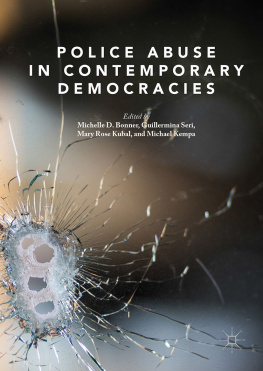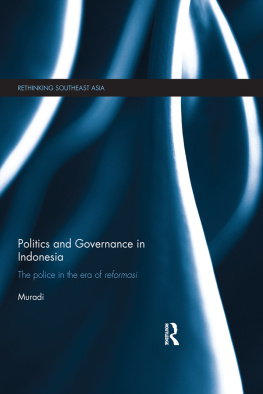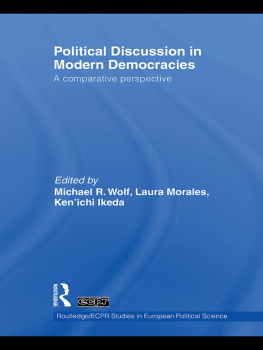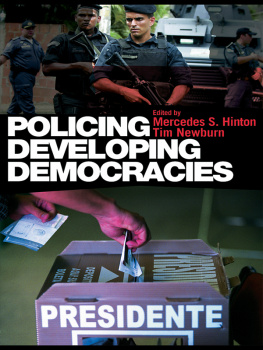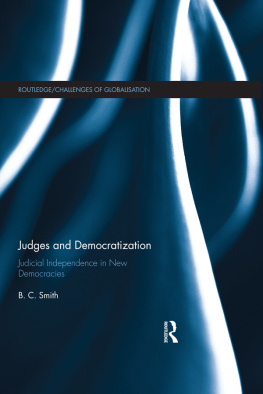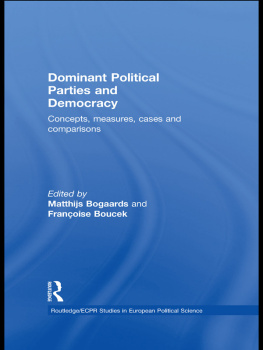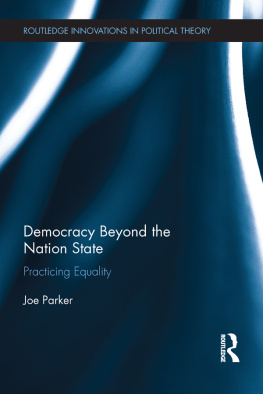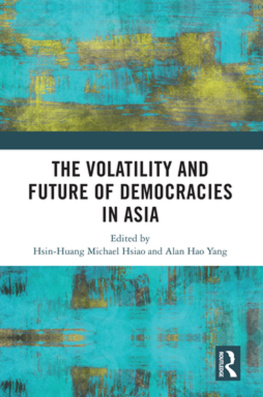On August 9, 2014, 18-year-old Michael Brown was fatally shot by a police officer in Ferguson, Missouri. He was suspected of petty theft but was unarmed. A subsequent trial found the officers actions to be justified as self-defense. Despite the institutions of democracy working as they are designed, large protests (themselves met with a significant police response, including repression, and arrests) registered profound public disagreement with the outcome. For many protesters this was one example, among numerous others, of police abuse aimed at African Americans that undermines their inclusion in American democracy . That is, what constitutes police abuse and its relationship with democracy was contested.
Such powerful disagreements are not unique to democracy in the United States . Abuse of police authority happens in all democracies. It can include arbitrary arrest, selective surveillance and crowd control, harassment, sexual assault, torture , killings, or even disappearances. In newer democracies, police abuse is likely to be considered by political scientists as a legacy of previous authoritarian regimes or civil war. Its persistence is understood to reflect weak democratic institutions (the primary focus of political scientists) and poorly functioning police institutions (a more common focus for criminologists).
Certainly, the field of political science counts with seminal contributions and a tradition of research scrutinizing the impact of police power on the government such as: the various governing roles of the police exposed by Michael Lipskys study of street-level bureaucrats (Lipsky ) research showing the role of police in fabricating modern social order. Yet, students of democratization and theorists alike have largely ignored this scholarship. Most political scientist research stubbornly keeps treating policing as law enforcement.
Along these lines, in established democracies, police abuse is often treated in political science and popular accounts as an aberration, an act that has little to no bearing on democracy and that is adequately addressed by existing or tweaked mechanisms of institutional accountability . This is in part the reason why police abuse has received more attention in newer than in established democracies and from criminologists rather than political scientists, gaps that concerning trends call to address.
As the introduction to a recent Perspectives on Politics volume on the politics of policing and incarceration admonished, it is now clear that a truly general, comparative, and nonparochial political science must account for the fact that the topics of policing, police brutality , incarceration, and repression more generally are not limited to authoritarian regimes (Isaac , p. 610). Here we take this agenda a step further asking, is police abuse best understood as deviance that requires a technical institutional fix? or should its pervasiveness fundamentally alter our understanding of democracy ? This book argues that police abuse challenges political scientistsespeciallyto rethink the concept of democracy in a manner that forefronts policing.
Rather than merely one of many bureaucratic bodies subordinated to democratic politics, police are the only institution with the legitimate right to use deadly violence against citizens. The boundaries of this violence are ideally defined by respect for human rights . However, in practice, these boundaries are found at the point of connection between police discretion, police ability to justify their actions, and state and societys willingness to accept such justifications. For example, as seen in the Michael Brown case, police powers include homicide, as long as the officer can justify the action as necessary for the fulfillment of police duties or for the safety of the officer(s) and that state officials and society accept the justification the officer provides as valid. Judges, courts, and oversight and governance bodies are often lenient toward the police, achieving little effective accountability (see Bonner, Chapter ).
In many cases, established inequalities in a society determine if some forms of police abuse even need to be justified or are instead accepted as normal by the affected community, police, political leaders, or society at large. Poor or marginalized youth may experience police harassment and beatings as a regular part of their interactions with the police. Society at large, whose opinion is often filtered through the mass media , may accept such action on the part of the police as necessary due to these communities being perceived as violent or criminal. Reciprocally, influential police reformers within government often advocate for targeting what they see as the most dangerous classestypically those that threaten the stability of the political and economic order. In these cases, police abuse may not even be perceived as such. This is as true in established democracies such as France (e.g., in relation to Algerians ) or the United States (e.g., in relation to African American communities), as it is in newer democracies such as Argentina or South Africa (e.g., in relation to youth living in economically poorer neighborhoods) (see Schneider, Chapter ).
Thus similar to police repression or police violence , we define police abuse as police actions that may or may not be illegal but severely limit selective citizens rights, receive minimal punishment (limited accountability ), and may play a role in maintaining (or promoting) particular political and economic objectives. That is, we use the term police abuse in this book, not as a term to denote when police have overstepped the law, but rather in terms of how police actions may be perceived by those affected, or by those unfamiliar with or unaccepting of the justifications, or both. Other terms, such as police excesses or unnecessary violence suggest that the only problematic actions by police are those that exceed legal boundaries or cannot be justified according to dominant societal norms. As we have explained here, legal boundaries are often intentionally blurry and dominant social norms may discriminate against marginalized communities or be accepting of high levels of police violence .
The chapters that follow primarily concentrate on acts of police abuse that pertain to physical violence (e.g., beatings, torture , forced disappearance, and homicide), as well as the surveillance, arrest, or stop and frisk of people targeted based on class, race, political orientation, etc. We chose these because their dramatic nature highlights the tensions between policing and democracy . Of course, the types of police abuse examined in this volume are not exhaustive of all its forms. Police abuse can also include corruption , white-collar crime , political policing, spying, and gender-based violence , to name only a few important additional areas of inquiry. We aim for the themes explored in this book to be a useful starting point for debate and exploration on a wider range of police abuses and their relationship to democracy .
Though far from the drama of military coups, persistent police abuses of all forms can corrode a democratic regime and reinforce its internal borderscreating a neo-feudal type landscape of privileged spaces of democratic inclusion and surrounding badlands of democratic exclusion. This book contends that police abuse is a structural and conceptual dimension of extant democracies, not an exceptional occurrence or aberration, and by doing so draws our attention to the part it plays in the persistence of hybrid democracies, the uneven quality of democracy within nations, and in the overall decline of democracy (Puddington ). Policing is thus of great consequence for the quality of experience of democracy .

